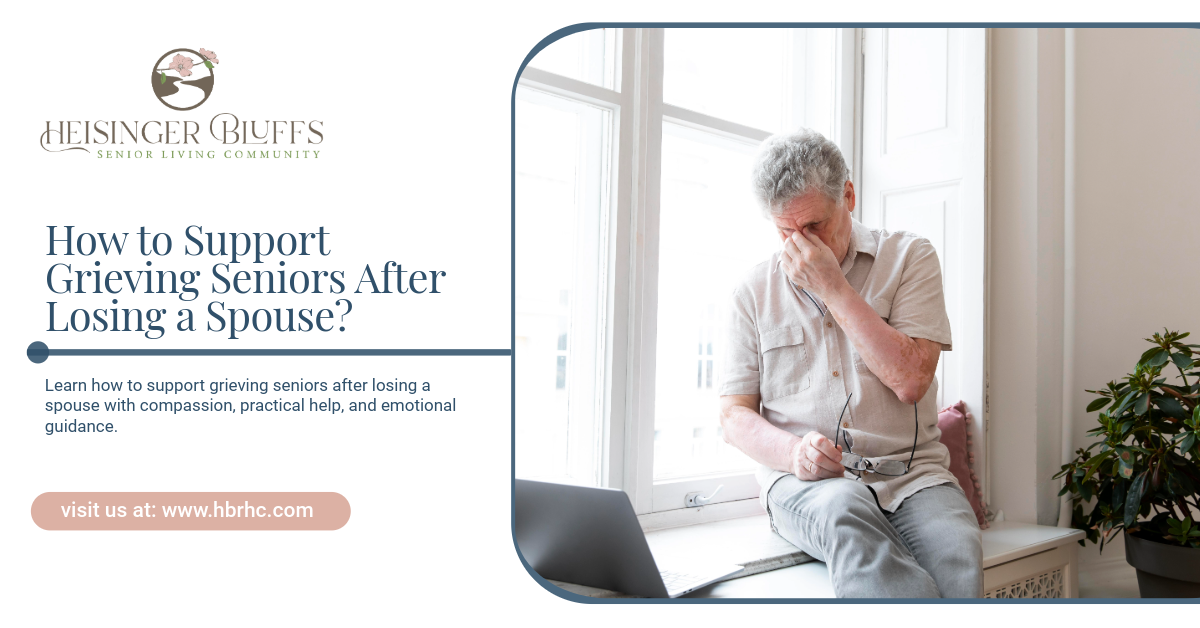How to Support Grieving Seniors After Losing a Spouse?

Losing a spouse is one of the most profound challenges a senior can face. Support from family, friends, and caregivers can help them navigate grief and regain a sense of stability.
- Offer Emotional Presence: Simply listening and acknowledging their feelings can provide comfort. Avoid rushing their grief or offering clichés.
- Encourage Social Connection: Gently encourage participation in support groups, senior activities, or regular visits with friends to reduce isolation.
- Assist With Daily Tasks: Help with meals, errands, or household chores to ease stress and allow them time to focus on healing.
- Promote Routine and Self-Care: Maintaining a predictable schedule, eating well, staying active, and getting rest can support emotional recovery.
- Respect Their Pace: Grieving is personal. Offer patience and consistent support without forcing change.
At Heisinger Bluffs, grieving seniors receive compassionate care, structured support, and resources to help them navigate loss while maintaining quality of life.
Frequently Asked Questions
How long does grief last for seniors?
It varies; some may take months, others longer, depending on their relationship and coping style.
Can grief cause physical symptoms?
Yes—fatigue, sleep changes, or loss of appetite are common.
When should professional help be sought?
If depression, prolonged isolation, or severe anxiety occurs, seek counseling or medical support.
Sources:
- https://www.ncoa.org/article/the-widowhood-effect-how-to-survive-the-loss-of-a-spouse/
- https://www.nia.nih.gov/health/grief-and-mourning/coping-grief-and-loss











